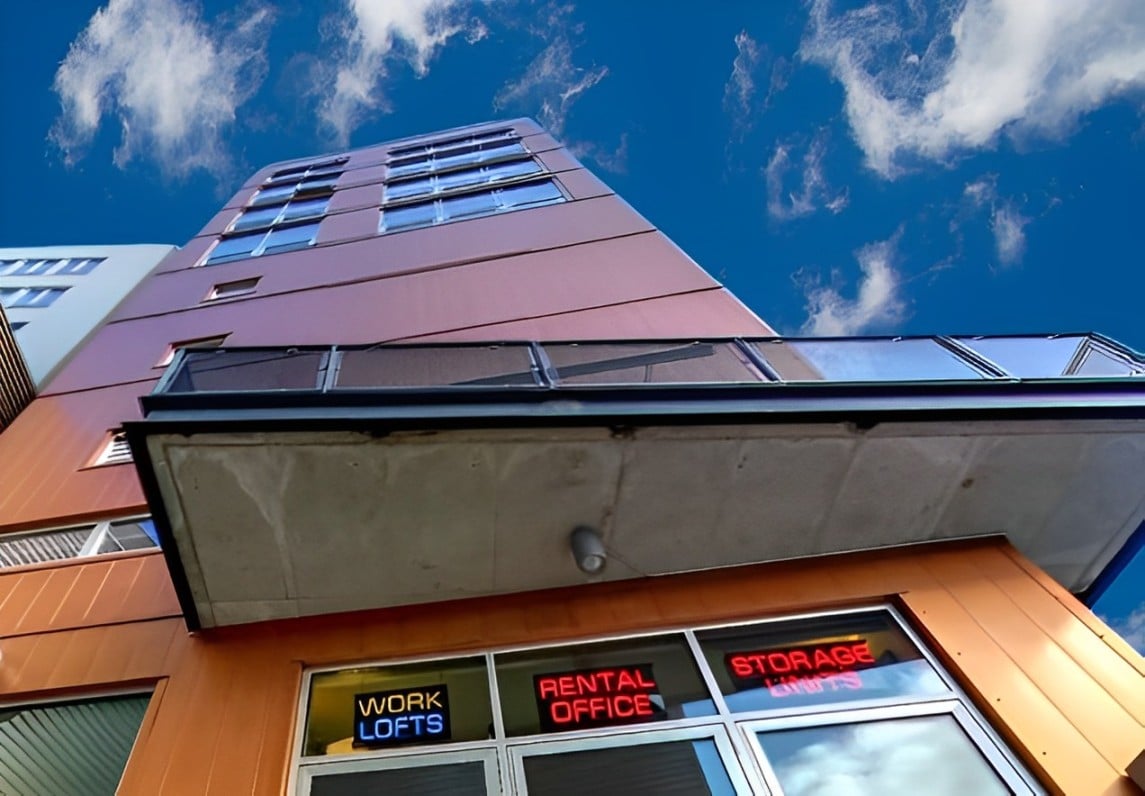2021 Legal Update: Managing The “New Normal”
There was a collective sigh of relief as we reached the end of 2020. Between the pandemic and a rancorous election, many were focused on hopeful changes in 2021 that would bring the end to the pandemic and an escape from politics. Instead, the specter of the virus remains a significant factor in our everyday lives and the divisions in our country were not automatically resolved with a new administration. These issues continue to impact many businesses and industries, self-storage among them. The health and safety issues of the pandemic, coupled with the economic fallout and stimulus legislation, all affect the transitions that motivate the need and use of self-storage, all affect the financial ability of tenants to pay, and further affect the transaction and capital markets that support purchases and sales between buyers and sellers. At least for 2021, these concerns will be part of the new normal in our industry.
COVID-19 Pandemic Implication On Operations
There are undoubtedly many impacts that the pandemic has had on how self-storage facilities operate. One of the initial challenges that the pandemic caused was the clarification of the “essential” role of self-storage and the measures that could be used to keep facilities open while states and municipalities began to enforce (and some now even reinstating) shelter-in-place or “stay-at-home” orders to reduce the spread of the virus. Self-storage operators soon learned that as “real estate” businesses, self-storage fell within with the list of “Essential Critical Infrastructure Workers” issued by the federal government and used by several states. An important lesson from all of this may have been that even if a self-storage facility is allowed to stay open, facilities also reserve the right to be closed. Remember that operators always have the right to restrict or prohibit access during emergencies (such as hurricanes, snowstorms, etc.). Whether you stay open or close (or shift policies about access during the pandemic), operators should always keep their tenants informed. We recommend posting signage on the gates and providing a number to call, as well as utilizing special notices on your website.
Unfortunately, another repercussion of the pandemic has been increased homelessness and a greater use of self-storage facilities for overnight/residential use. This use cannot be permitted, and these situations have forced many operators to increase their external security and increase enforcement of their lease termination and eviction remedies. Even if a facility is trying to be accommodating to a tenant in a bad situation, self-storage facilities are not zoned or constructed for residential use. The failure to act can result in significant liability for an operator who fails to enforce the rules on non-residential occupancy. Even though the CDC has extended its residential eviction moratoriums, that does not apply to the illegal use of a self-storage facility as a residence. If the local police will not act to assist an operator in removing tenants who are committing this life safety violation, then the courts should be used for an eviction action and the Court should be notified of the illegal use so as not to be delayed by any other moratoriums that otherwise might apply.
Another significant change in self-storage procedures brought on by the pandemic has been the emergence of technology relating to contactless rentals. Fortunately, there are a multitude of vendors in this industry that have been focused for years on the use of technology to make the business of self-storage more user-friendly for the customer and more efficient for the operator. Now that same technology allows facilities to stay open while meeting the safety and health protocols that have been imposed by both federal and state laws to protect facility employees and their tenants. Instead of having person-to-person interactions for contract execution, move-ins, payments, and even move outs, we have instead seen the utilization of available technology for kiosk or mobile reservations and contract executions, Bluetooth or remote gate and unit access, web-based or mobile payment processing, and greater reliance on call center and online services. All of this “contact-less” service has elevated the self-storage experience to be quicker, safer, and easier for all parties involved.
Lastly, one other impact from the pandemic has been the recognized risk for businesses that continue to operate and allow customer access even with the concern that the employees or customers could contract the virus while using the business. As a result, safety and cleanliness should be a top priority for any business that invites customers to its property. Many businesses that have stayed open have taken measures recommended in the OSHA guidelines to enforce social distancing, such as the use of plexiglass at office counters as a barrier between the customer and employee, providing masks and other personal protection equipment (face shields, gloves, hand sanitizer) to employees and customers, and having clear safety rules for employees and customers to follow. Other changes to self-storage facility procedures might include limiting the number of customers in the office, disinfecting the office after each customer leaves, disinfecting any frequently touched surfaces, and providing hand sanitizer dispensers around the facility for employees and customers to use. Operators should be up front and transparent about the steps they are taking and rules they are implementing, even putting additional signage up at the facility and on their website. Due to the overall concern about COVID liability, a number of state legislatures have agreed to provide liability protection for businesses against the risk of virus injury claims. The only way that a business will fail to assert these protections would be if the person claiming the injury can prove “gross negligence, willful or wanton misconduct, or reckless or intentional infliction of harm” by the business.
Rental Agreements
Although the effort was made during 2020, there were few legislative impacts in the country that directly affected the drafting of standard self-storage rental agreements. But the lack of statutory impacts does not change the fact that rental agreements should be reviewed on an ongoing basis to address operational changes that are made to the facility and, as importantly, to address issues that may have impacted the facility in the past. Rental agreements should be seen as “living” documents to be changed as the facility changes. For example, and as discussed above, one of the clear operational concerns that has been sparked by the pandemic is the use of self-storage facilities as temporary residencies. This type of tenant conduct cannot be permitted. It may be important to update your rental agreement to address these types of issues. For example, many rental agreements state that either party may terminate the agreement with notice to the other party at least 10 or even 14 days before the end of the monthly term. Due to the concerns about improper use of the rented spaces, it may be appropriate to reduce the termination notice period in the rental so that tenants, especially unruly tenants, may be terminated more quickly if it becomes necessary. Further, language could be added to the termination provision and other provisions in the rental agreement to allow for immediate termination of the tenant’s occupancy due to certain actions by the tenant, such as criminal or illegal acts or improper use of the storage space. This update can also include a provision in the rental agreement allowing the facility to deny gate access to the tenant when the tenant’s occupancy has been terminated. This provision will force the tenant into the facility’s office and allow the facility to escort or monitor the tenant during his or her visit to the facility when moving out, which can help to ensure that an unhappy tenant does not do unwanted damage to the facility after being terminated. Finally, rental agreements can be updated to include a provision that specifically addresses the conduct of the tenant and the tenant’s guests and invitees while at the facility. This provision should include language regarding the treatment of other tenants and the facility’s employees and should provide for immediate termination if the tenant or tenant’s guests or invitees fail to comply with the provision.
Employment
As a result of COVID, the government instituted The Families First Coronavirus Response Act. The widespread law included a number of elements for financial aid for struggling businesses and a number of protections for employees. Specifically, the Act instituted a supplement to the Sick Leave and Family Leave laws that permitted employees either suffering from the virus or employees acting as caretakers for others to still receive pay.
The law took effect in April 2020 and expired Dec. 31, 2020. The federal law applied to employers with less than 500 employees but also had an exemption for employers with less than 50 employees (whose required compliance would jeopardize the viability of the business). The law also applied only to employees who have already been employed with the company for at least 30 days. Included in the law was an expansion of the existing Family Medical Leave Act (FMLA) under which employers provide up to 12 weeks of job protected leave when an employee is unable to work (or telework) due to health conditions of the employee’s children (or other qualified family members). The Act also included a section that applied to the employees themselves (sick leave). This included employees who were sick, advised to self-quarantine, or were subject to federal, state, or local shelter-in-place orders. Although the leave aspects of the law ended on Dec. 31, 2020, the law (and ongoing appropriations acts) allows employers to voluntarily decide to provide “qualified” paid sick leave or paid family leave wages to their employees and continue to receive a tax credit for such wages until March 31, 2021.
The strife that the virus has caused has also raised numerous questions about the rights of Employers and Employees addressing the need for virus testing and virus vaccines as a condition to continued employment. There is no doubt that when it comes to testing for COVID, employers do have rights (and are provided certain exceptions under the ADA) for requiring their employees to be tested before entering into the workplace. The procedures can include temperature checks, having to take a diagnostic test, and requiring employees to stay home if they feel sick or if they’ve tested positive for COVID. Interestingly, the ADA does not allow employers to require that their employees take anti-body tests. To avoid any claim of discrimination, if an employer is doing this type of COVID testing they must apply their screening practices equally among employees and not according to any discriminatory basis.
Finally, employers do have the right to establish safety procedures in the workplace that must be followed for the equal protections of all employees including masking, social distancing, and hand washing. The Equal Employment Opportunity Commission recently addressed the question as to whether employers could require employees to be vaccinated and have confirmed that an employer can require its employees to get a vaccine to work in the workplace. However, there are exceptions under the ADA and for religious reasons, and those reasons must be accommodated. If an employee refuses to take a vaccine, an employer must be prepared to provide an accommodation rather than risk losing the employee from the workforce. Another accommodation may be needed such as a work-from-home option. The intent of the vaccine is to provide greater health and safety to the company’s employees. An employer may need to consider providing financial incentives to their employees who otherwise may choose not to get the vaccine.
Transition Of Ownership
2021 is expected to be a busy year of transactions in the self-storage industry. The pandemic has triggered increased interest in selling and in buying as interest rates remain low and capital markets remain flush with funds, with growing uncertainty as to the possibility of future legislation as to taxes and impending inflation that may impact real estate pricing and financing. There have been some important lessons learned from the past few years about the acquisition of properties. We are seeing more and more the significant clean up required when a property is purchased without a proper audit of the unit leases and accounts, so much so that new buyers are left wondering who their tenants are, whether tenants have paid, and what the buyers’ legal rights are to turn the units over for future tenants. It is crucial that, in order to avoid the risk of unknown tenancies and therefore the potential of wrongful sales or terminations, buyers work as hard as possible to understand not only the ROI that they are seeking but also the true condition of their tenancy. Equally, properties are being purchased without sufficient due diligence as to maintenance inspections, latent defects with building or systems, and past repairs that may not be disclosed. Although there may be value in “AS IS” property purchases, a buyer must recognize the hidden dangers that arise from having hundreds of closed units without any idea as to their condition. It is important for both buyers and sellers to discuss and recognize in their purchase and sale documents the risks of any transactions. Maybe those risks are resolved by the pricing; if not, maybe money could be set aside via escrow to deal with future claims. Additionally, the parties can address the representations and warranties that are expressed in the purchase and sale documents so that each side understands the risks and rewards of these obligations and whether they survive the closing and transfer of title.
Buyers and sellers must understand that a self-storage transaction is unique because it includes not only the transfer of real estate but the transfer of an ongoing business interest and, potentially, the downstream obligations to hundreds of tenants that occupy the rented storage spaces. This part of the transaction cannot be overlooked because any value that is captured in a quick sale may be lost in the future cost of litigation arising from wrongful sales or improper lease terminations. Similarly, benefits of the sale can be lost in costly repairs or the discovery of latent defects.
More Content
Popular Posts
The REITs new pricing strategy – lowering...
The self storage industry is in a precarious...
With the approval of both companies’...
Recent Posts
Owning or managing a self-storage facility...
Helen Keller is quoted as saying, “Alone we...
It’s often been said that “opportunity is...
There’s a saying in Florida that there are...
The landscape of the self-storage industry...
Last January, the prime interest rate was...
Many of us are seeking ways to bring in new...














